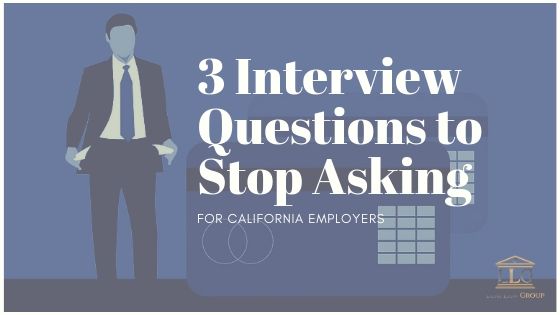Are Your Hiring Practices Guilty of Accidental Discrimination?

Workplace discrimination has always been a hot subject. Yet, in today’s progressive society, employers need to be more conscious than ever in how they hire. By focusing your attention on equality and integrity during your hiring process, you can eliminate accidental discrimination. This will ensure you’re hiring the best candidate for every position. Avoid accidentally […]
California Business Owners: Stop Asking These Interview Questions!

If you’re a small business owner who isn’t accustomed to hiring, you’re probably unaware that many of the common interview questions from “back in the day” are now illegal to ask in California. We’ve divided this article into two sections: the three questions you need to stop asking now, and the three questions you should’ve […]
3 Things You Can Do to Make Interviewing Job Candidates Easier

While startup founders are well-known for their skills in selling their business, they’re also known for being smart about hiring. Small business owners, especially long-term owners or new entrepreneurs, may not be as hiring savvy. If you’re new to the hiring process, here’s a few strategies you can employ for a more successful interview. Prepare […]

